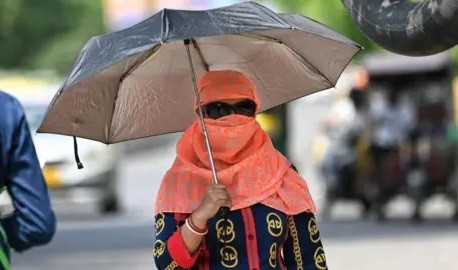30/05/2024
30/05/2024

NEW DELHI, India, May 30: Delhi, India, experienced an unprecedented high temperature of 52.9 degrees Celsius (127.22 Fahrenheit) on Wednesday, as scorching heat enveloped the northern and western regions of the country. The extreme conditions led to students fainting in schools and the depletion of drinking water sources.
The Indian Meteorological Department (IMD) had issued a heatwave alert for significant parts of India since the previous week. However, on Wednesday, temperatures soared beyond expectations, particularly in Mungeshpur, a densely populated area of Delhi, where the mercury crossed the 50-degree Celsius mark.
While Delhi has witnessed temperatures exceeding 45 degrees Celsius in previous years, this new record of 52.9 degrees Celsius marks an unprecedented high. The streets of Mungeshpur were deserted, and most shops remained closed as residents sought refuge indoors to escape the blistering heat. In neighboring Narela, where temperatures reached 49.9 degrees Celsius on Tuesday, locals distributed free cold beverages to combat the heatwave's effects.
Residents expressed their struggles with the intense heat, describing it as akin to being slapped in the face whenever they ventured outdoors. The heatwave's impact was particularly felt by students, with reports of fainting, sickness, and dehydration. Nidhi, a student, highlighted the dire conditions, citing malfunctioning fans and insufficient relief measures in educational institutions.
Gufran Beig, a chair professor at the Indian Institute of Science, attributed the prolonged heatwave to an unusual transition from El Nino to La Nina weather patterns, coupled with a lack of moisture-bearing winds. He expressed concerns about the role of climate change in exacerbating extreme weather events.
Despite the oppressive heat, some relief was experienced with light rain in parts of Delhi later on Wednesday. Weather officials anticipate a gradual easing of the heatwave towards the end of the week across northwest and central India.
In response to the crisis, local authorities in Delhi have imposed water supply restrictions and fines for wastage, including a penalty of 2,000 rupees ($24) for activities such as car washing. Meanwhile, schools in the eastern state of Bihar have been ordered to remain closed until June 8 following reports of student fainting incidents.
The severity of the heatwave has been underscored by its impact on human health, with reports of fatalities and heat-related illnesses across various states. In Rajasthan, central India, temperatures have soared to 50 degrees Celsius in some districts, resulting in fatalities and numerous cases of heatstroke. Conversely, parts of northeastern India have faced heavy rainfall and flooding in the aftermath of cyclone Remal, causing casualties and widespread damage.


